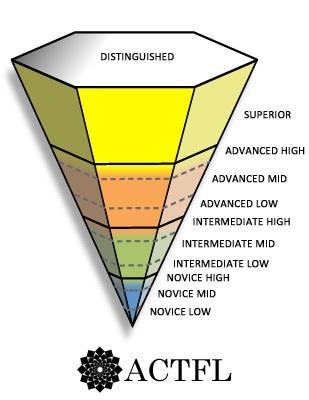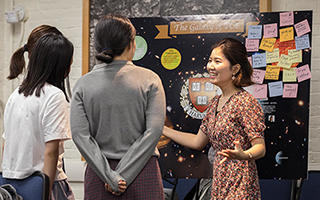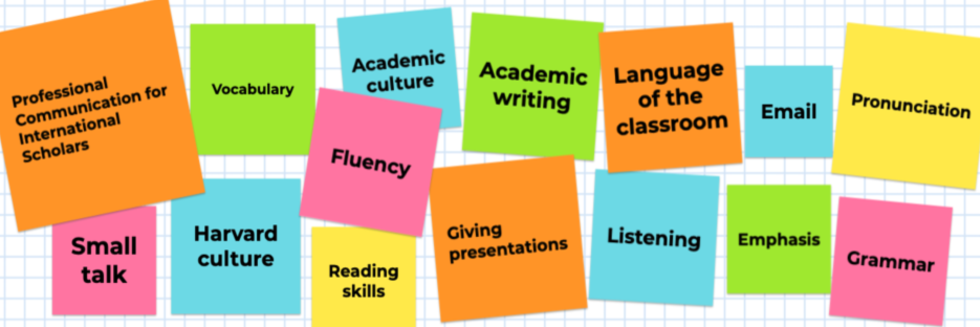Professional Communication Program for International Teachers and Scholars
Consultations
We provide consultations for faculty and PhD students across the FAS who want to improve their teaching, speaking, or presentation skills. We offer a range of resources focused on English language proficiency development, the culture of the classroom, and professional communication specific to the needs of international teachers and scholars, and are happy to discuss your oral communication goals. schedule a consultation.
Online Resources
We have asynchronous programs, training materials, and resources for students and scholars who want to develop English language proficiency, pronunciation, and classroom communication skills. Our programs are designed for GSAS PhD students and others at similar career stages engaged in the teaching of Harvard College undergraduates.
Professional Communication for International Scholars: Designed as a foundational resource for all international PhD students, this online program provides an overview of academic culture and communication at Harvard, and covers English language skills (speaking, listening, writing, and reading) and cross-cultural communication skills. Students can engage with materials in different areas of communication, complete a variety of tasks to become aware of their strengths and weaknesses as communicators, and find additional resources. Join the Canvas Site.
Teaching as an International Scholar: Part of our portfolio of remote resources for Teaching Fellows, this module provides an introduction to academic culture and communication in the U.S., the language and culture of the Harvard classroom, and communication and English language resources. PhD students may register for the Hit The Ground Running Canvas site to access this module. Register here.
Blue Canoe Learning: Eligible PhD students who are working on their pronunciation skills can request a semester-long subscription for the Blue Canoe pronunciation app. This app helps individuals improve the clarity of their pronunciation with daily activities on the sounds and rhythm of English. Request a subscription here.
In addition to these online resources, we offer self-study programs that target various aspects of oral English proficiency including fluency, pronunciation, and clarity and coherence. Schedule a consultation to learn more or register for one of these Bok Self-Study Programs.
Self-Study Programs
Oral English Proficiency Development: A Bok Self-Study Program is an online, asynchronous program focused on fluency, organizational skills, and classroom communication skills.
Pronunciation and Intelligibility: A Bok Self-Study Program is an 11-week online, asynchronous program focused on improving awareness of pronunciation features in English and practicing strategies to improve the clarity of English speech.
Clarity and Coherence in English: A Bok Self-Study Program is a six-week program focused on improving grammar, fluency, and coherence in English. Each module provides an overview of grammar and organizing strategies as well as activities to improve accuracy and comprehensibility in English.
Connect with Undergraduates
International TF Discussion Group: Each semester, International PhD students have the opportunity to join our undergraduate Culture and Communication Consultants to practice oral communication skills and discuss topics related to language, culture, teaching, and current events. Join the discussion group.
Language Partners: Eligible PhD students may meet with trained undergraduate Culture and Communication Consultants to practice oral English skills, build confidence when communicating in English, and learn more about undergraduate perspectives.
Seminars
Our Bok Seminars range from full-semester courses designed for students who have not yet met the GSAS Oral English Language requirement, to short seminars focused on pronunciation, public speaking, and oral grammar and coherence. Our programs are designed for GSAS PhD students and others at similar career stages engaged in the teaching of Harvard College undergraduates.
View Seminars
Enhancing Fluency: Speaking and Listening for International TFs targets the foundations of oral proficiency: fluency, vocabulary, and listening strategies.
Classroom Communication Skills for International TFs focuses on a full range of oral communication skills with particular emphasis on oral English comprehensibility, teaching, and communication skills.
Clarity and Coherence for International TFs provides practice with written and oral strategies focused on English grammar, fluency, and coherence.
Intercultural Communication Skills for International PhD Students explores how our cultural values influence our communication in a range of academic and classroom situations.
Public Speaking for International Teachers and Scholars explores important elements of structure and delivery and provides a forum for practice and feedback.
Speak Up! Pronunciation for International TFs focuses on building awareness of English pronunciation features and provides hands-on activities to improve clarity and comprehensibility when speaking or presenting in English.
Workshops: We offer stand-alone workshops on English language and cross-cultural communication and teaching. Please visit our Workshops page to request a customized workshop for your group.
Language Assessment
 We provide English language proficiency interviews (based on ACTFL guidelines) for non-native English speaking faculty and graduate students at all stages of their academic careers, including those who need to meet the GSAS Oral English Proficiency Requirement. For those seeking feedback or advice on their English speaking skills, the interview provides a holistic assessment, enables speakers to understand their own strengths and weaknesses, and informs strategies that could be used to build proficiency. These strategies are relevant to contexts from small talk and networking to lecturing and giving formal presentations. The interview also allows us to suggest the most relevant Bok Seminars, workshops, or other resources.
We provide English language proficiency interviews (based on ACTFL guidelines) for non-native English speaking faculty and graduate students at all stages of their academic careers, including those who need to meet the GSAS Oral English Proficiency Requirement. For those seeking feedback or advice on their English speaking skills, the interview provides a holistic assessment, enables speakers to understand their own strengths and weaknesses, and informs strategies that could be used to build proficiency. These strategies are relevant to contexts from small talk and networking to lecturing and giving formal presentations. The interview also allows us to suggest the most relevant Bok Seminars, workshops, or other resources.
We work with the Harvard Kenneth C. Griffin Graduate School of Arts and Sciences (GSAS) on the administration of the GSAS Oral English Proficiency Requirement.
Frequently Asked Questions
Why do we offer the GSAS Oral Proficiency Screening?
PhD students need to be able to communicate in English effectively as students, researchers, and Teaching Fellows. Harvard Griffin GSAS uses a student’s incoming TOEFL/IELTS score or an interview to determine if students have met the GSAS Oral English Language Requirement.
Who should schedule a language interview?
Incoming G1 students with TOEFL speaking scores 25 and below or IELTS speaking scores 7.5 and below should schedule a language interview during their first semester of study. Interviews for incoming G1 students are scheduled in August and September.
How can students schedule their interview and get their results?
Once Harvard Griffin GSAS has emailed incoming students about the language requirement, we will contact the students who need to schedule a 30-minute interview. Results of the interview may be communicated in-person directly after the interview or within a week by email.
How can students prepare?
There is no need to prepare for the interview. It is designed to allow students to demonstrate their ability with spoken English. The interviewer may ask about a range of topics related to daily life, interests and academic work. Students should try to be well-rested and ready to speak at length. After the interview, we will discuss the case, students can ask any questions they have, and we will make any suggestions we have based on the students’ demonstrated language proficiency.
What are the possible outcomes of the interview and what do they mean?
The results are that you have either Met or Not Met the GSAS Oral English Language Requirement. Students who meet the requirement do not need to take further action, though we may offer suggestions to help with further language and communication development. Students who have not met the requirement will need to take steps to meet the requirement before they are eligible to work as teaching fellows.
What should a student do if they do not meet the language requirement?
Students who have not met the language requirement should take an oral communications skills course. We will recommend the best option based on a student's specific case. After completing a semester-long course, students are eligible to be re-screened to determine whether they have met the requirement. Students who do not take language or communication courses are are eligible to be re-screened after one year.
When are screenings and rescreenings offered?
Screenings are offered every August, and at the end of each term in December and May.
For more information about understanding English language proficiency and incoming language test scores please see this guide for departments, this guide for students, or contact us.
Harvard Griffin GSAS Welcomes: International Summer Institute
 The Bok Center collaborates with Harvard Griffin GSAS on Harvard Griffin GSAS Welcomes: International Summer Institute where new international PhD students are invited to come to build community, activate English language skills, and learn more about Harvard before they begin their first term.
The Bok Center collaborates with Harvard Griffin GSAS on Harvard Griffin GSAS Welcomes: International Summer Institute where new international PhD students are invited to come to build community, activate English language skills, and learn more about Harvard before they begin their first term.






